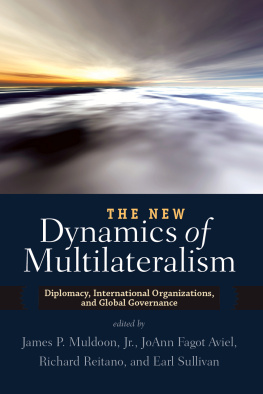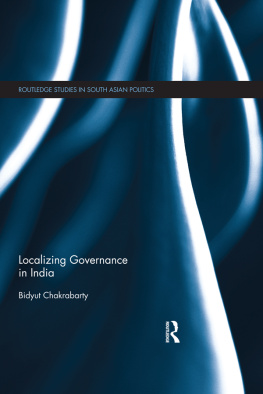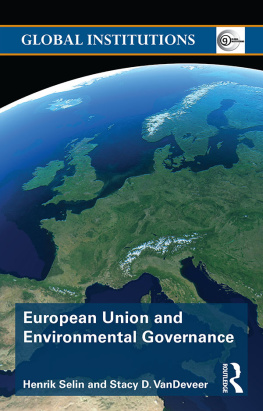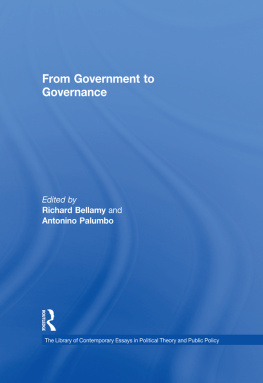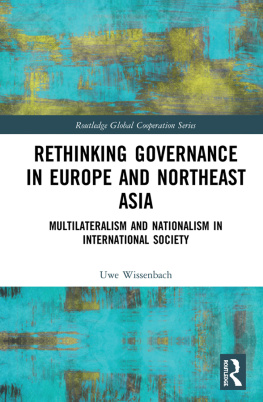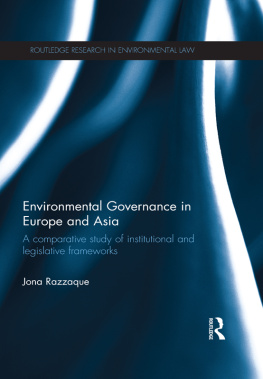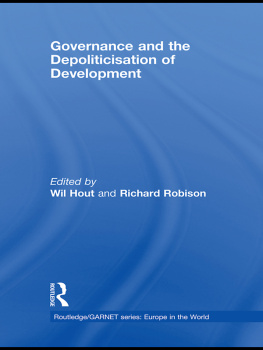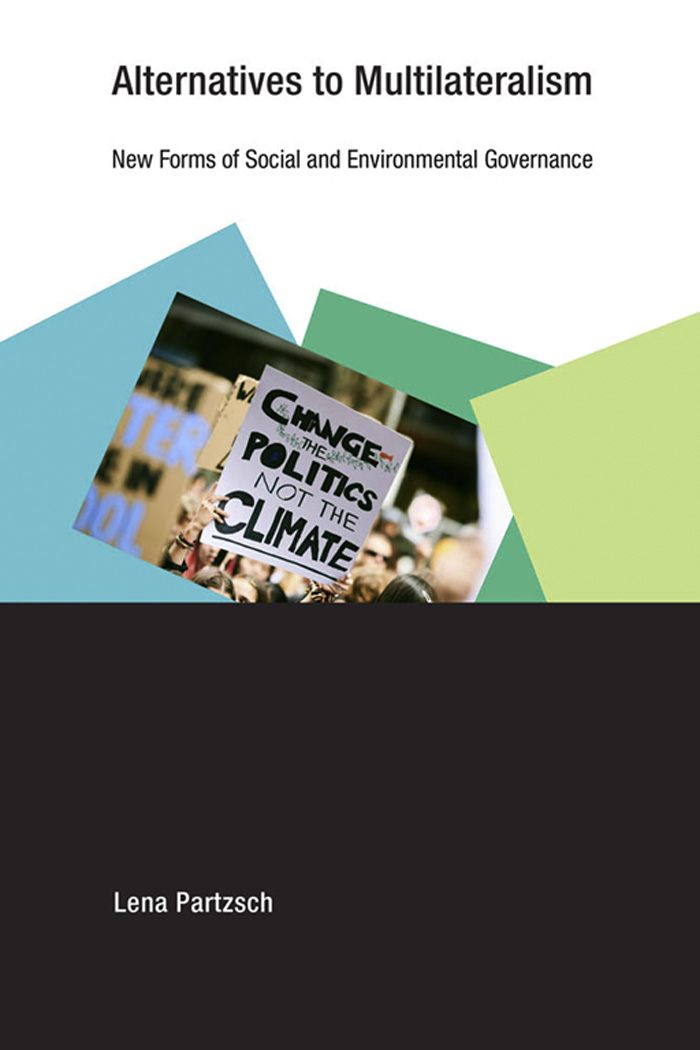
Alternatives to Multilateralism
Earth System Governance
Frank Biermann and Oran R. Young, series editors
Oran R. Young, Institutional Dynamics: Emergent Patterns in International Environmental Governance
Frank Biermann and Philipp Pattberg, eds., Global Environmental Governance Reconsidered
Olav Schram Stokke, Disaggregating International Regimes: A New Approach to Evaluation and Comparison
Aarti Gupta and Michael Mason, eds., Transparency in Global Environmental Governance: Critical Perspectives
Sikina Jinnah, Post-Treaty Politics: Secretariat Influence in Global Environmental Governance
Frank Biermann, Earth System Governance: World Politics in the Anthropocene
Walter F. Baber and Robert B. Bartlett, Consensus in Global Environmental Governance: Deliberative Democracy in Natures Regime
Diarmuid Torney, European Climate Leadership in Question: Policies toward China and India
David Ciplet, J. Timmons Roberts, and Mizan R. Khan, Power in a Warming World: The New Global Politics of Climate Change and the Remaking of Environmental Inequality
Simon Nicholson and Sikina Jinnah, eds., New Earth Politics: Essays from the Anthropocene
Norichika Kanie and Frank Biermann, eds., Governing through Goals: Sustainable Development Goals as Governance Innovation
Oran R. Young, Governing Complex Systems: Social Capital for the Anthropocene
Susan Park and Teresa Kramarz, eds., Global Environmental Governance and the Accountability Trap
Teresa Kramarz, Forgotten Values: The World Bank and Its Partnerships for the Environment
Lena Partzsch, Alternatives to Multilateralism: New Forms of Social and Environmental Governance
Related books from Institutional Dimensions of Global Environmental Change: A Core Research Project of the International Human Dimensions Programme on Global Environmental Change
Oran R. Young, Leslie A. King, and Heike Schroeder, eds., Institutions and Environmental Change: Principal Findings, Applications, and Research Frontiers
Frank Biermann and Bernd Siebenhner, eds., Managers of Global Change: The Influence of International Environmental Bureaucracies
Sebastian Oberthr and Olav Schram Stokke, eds., Managing Institutional Complexity: Regime Interplay and Global Environmental Change
Alternatives to Multilateralism
New Forms of Social and Environmental Governance
Lena Partzsch
The MIT Press
Cambridge, Massachusetts
London, England
2020 Massachusetts Institute of Technology
This work is subject to a Creative Commons CC-BY-NC-ND license.
Subject to such license, all rights are reserved.

This book was supported by the German Federal Ministry of Research and Education (project no. 031B0235A).
This book was set in ITC Stone Serif Std and ITC Stone Sans Std by New Best-set Typesetters Ltd.
Library of Congress Cataloging-in-Publication Data
Names: Partzsch, Lena, 1978- author.
Title: Alternatives to multilateralism : new forms of social and environmental governance / Lena Partzsch.
Description: Cambridge, Massachusetts : The MIT Press, [2020] | Series: Earth system governance | Includes bibliographical references and index.
Identifiers: LCCN 2019049226 | ISBN 9780262539227 (paperback)
Subjects: LCSH: Business logisticsStandardsCase studies. | Business logisticsGovernment policyCase studies. | Social responsibility of businessCase studies. | Trade regulationCase studies. | GlobalizationEconomic aspects.
Classification: LCC HD38.5 .P365 2020 | DDC 338.6dc23
LC record available at https://lccn.loc.gov/2019049226
10 9 8 7 6 5 4 3 2 1
d_r0
Contents
Series Foreword
Humans now influence all biological and physical systems of the planet. Almost no species, land area, or part of the oceans has remained unaffected by the expansion of the human species. Recent scientific findings suggest that the entire earth system now operates outside the normal state exhibited over at least the past five hundred thousand years. Yet at the same time, it is apparent that the institutions, organizations, and mechanisms by which humans govern their relationship with the natural environment and global biogeochemical systems are utterly insufficientand poorly understood. More fundamental and applied research is needed.
Such research is no easy undertaking. It must span the entire globe because only integrated global solutions can ensure a sustainable coevolution of biophysical and socioeconomic systems. But it must also draw on local experiences and insights. Research on earth system governance must be about places in all their diversity, yet seek to integrate place-based research within a global understanding of the myriad human interactions with the earth system. Eventually, the task is to develop integrated systems of governance, from the local to the global level, that ensure the sustainable development of the coupled socioecological system that the Earth has become.
The Earth System Governance series is designed to address this research challenge. Books in this series will pursue this challenge from a variety of disciplinary perspectives, at different levels of governance, and with a range of methods. Yet all will further one common aim: analyzing current systems of earth system governance with a view to increased understanding and possible improvements and reform. Books in this series will be of interest to the academic community but will also inform practitioners and at times contribute to policy debates.
This series is related to the long-term international research program called the Earth System Governance Project.
Frank Biermann, Copernicus Institute of Sustainable Development, Utrecht University
Oran R. Young, Bren School, University of California, Santa Barbara
Earth System Governance Series Editors
Preface
This monograph developed in parallel to several research projects, through which I was funded over the last years. Writing a monograph as a side activity allowed me to be completely free in terms of its content. I was able to develop a deeper interest in and understanding of the issues at stake. While I started with the idea of studying ways to address blood consumption, I became more and more aware of new tricky types of regulation that allow the EU and the United States to govern outside their own territory. At the same time, I have increasingly scrutinized conventional understandings of power in international relations (IR), and I wanted to contribute to developing the concepts power to (empowerment and resistance) and power with (cooperation and learning). If we want to understand change, it is not enough to study gridlock. Rather, we need to look for and learn from the possibly rare but existing transitions to greater social justice and environmental sustainability in IR.
I am especially grateful to Beth Clevenger, Frank Biermann, and Oran Young, the editors of the MIT Press book series. They asked the right questions and very much encouraged me to find my own voice.
Moreover, I would like to thank all my Freiburg colleagues. Warm thanks for research assistance to Miriam Beulting, Laura Kemper, Frank Neto, Hannah Robinson, and Haley Wilhelm. Hannah Robinson proofread the entire manuscript, and I am especially grateful to her. When I was drawn into my intellectual work, my colleagues constantly reminded me to take care of my physical and emotional needs too. One of the most frequent phrases I heard over the last years was: Like in an airplane, put on your own oxygen mask first before trying to help othersor save the world.
Next page

